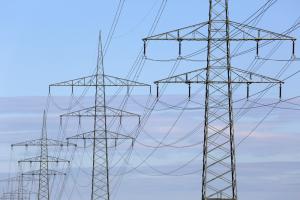Energy efficiency is the so-called first fuel – the one you do not have to use, yet it gives you the services you need. It is inexpensive and abundant. And it is key to achieving systems resilience and to enhancing industrial performance.
At its 31st session held on 21 September 2022 in Geneva, the UNECE Committee on Sustainable Energy looked into strategies that aim to achieve greater energy security and affordability, simultaneously adhering to the net-zero principle. The Committee agreed that energy efficiency, being the ‘first fuel’, must be an essential component of any solution seeking to overcome the current crisis.
In that context, on 3 and 4 October 2022, the Group of Experts on Energy Efficiency (GEEE) discussed the available options and opportunities to harness the benefits of the advancements of energy efficiency.
The GEEE’s approach rests on three pillars, the first of which focuses on improvements of energy efficiency in industry. The work on that matter is led by the Task Force on Industrial Energy Efficiency. As the newly elected Chair of the GEEE, Mr Stefan M. Buettner, observed at the meeting:
“Given high prices, energy efficiency is key to ensuring industries’ ability to remain in business and produce the goods and materials needed for daily life. All manufacturers, particularly energy-intensive ones, are suffering from high energy prices and the imminent danger of being cut-off if there is a shortage of energy. This, in turn, could lead to a dramatic chain reaction across supply chains: many have already started to suspend or scale down operations or are in danger of closing down for good. And it is not only about large and heavy industries: smaller companies and the companies that are critical part of supply chains, as well as those to whom energy is deeply embedded in their core operations are most at risk”.
The second pillar of the GEEE work, i.e., energy efficiency in buildings, is closely related to energy affordability. At its recent session GEEE analysed the gap between the performance objectives set forth in the Framework Guidelines for Energy Efficiency Standards in Buildings and the current energy efficiency standards in South-Eastern and Eastern Europe, the Caucasus, Central Asia, and the Russian Federation. The Group’s discussion on that matter was based on the results of three in-depth national studies conducted recently in Armenia, Kyrgyzstan, and the Republic of Moldova, which confirmed the existing gaps and the ways to bridge them.
The third pillar gives attention to unlocking energy efficiency potential through digitalization. As remarked by Mr. Buettner “GEEE has noticed a growing recognition of digitalization and its potential to increase impact of measures undertaken in the industrial and residential energy efficiency, on our path to energy resilience and a sustainable energy system. To use that potential, the Group will develop a roadmap for embedding digitalization in the work of other subsidiary bodies of the Committee on Sustainable Energy.” As for the Committee itself, the Chair stated that it “needs to undertake efforts to raise awareness of all energy users about practices and means allowing not only to avoid energy waste but also to identify and harness efficiency potentials across the board”.
The UNECE Group of Experts focuses on regulatory and policy dialogue addressing financial, technical and policy barriers to energy efficiency improvements, and on developing and sharing best practices in the field of energy efficiency, with the aim to improve the latter and strengthen regional cooperation in that field and reduce greenhouse gas emissions.


